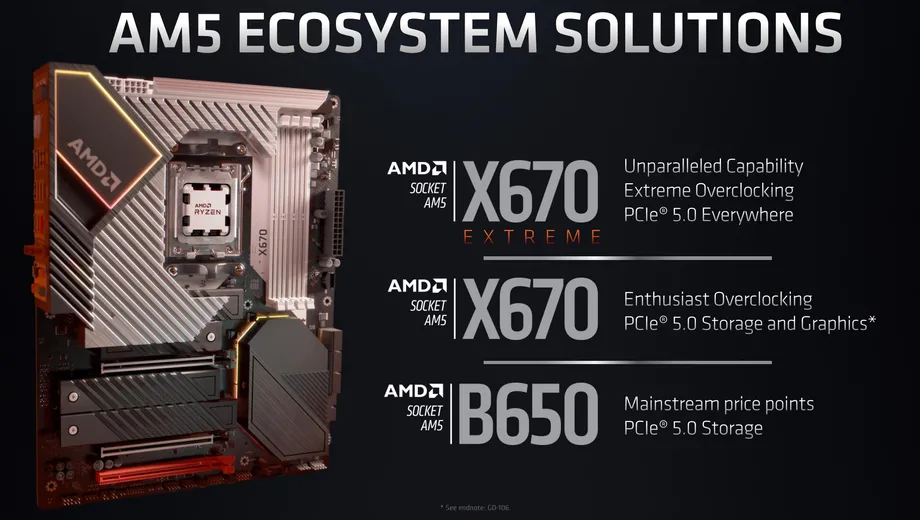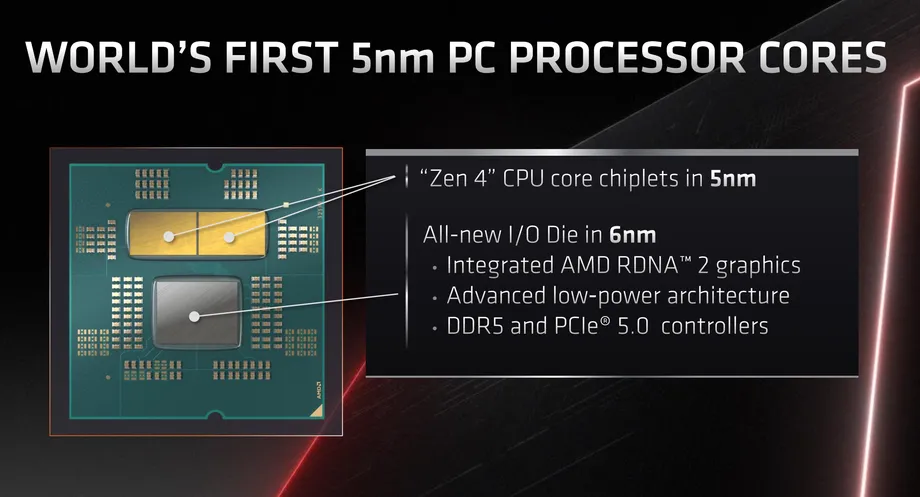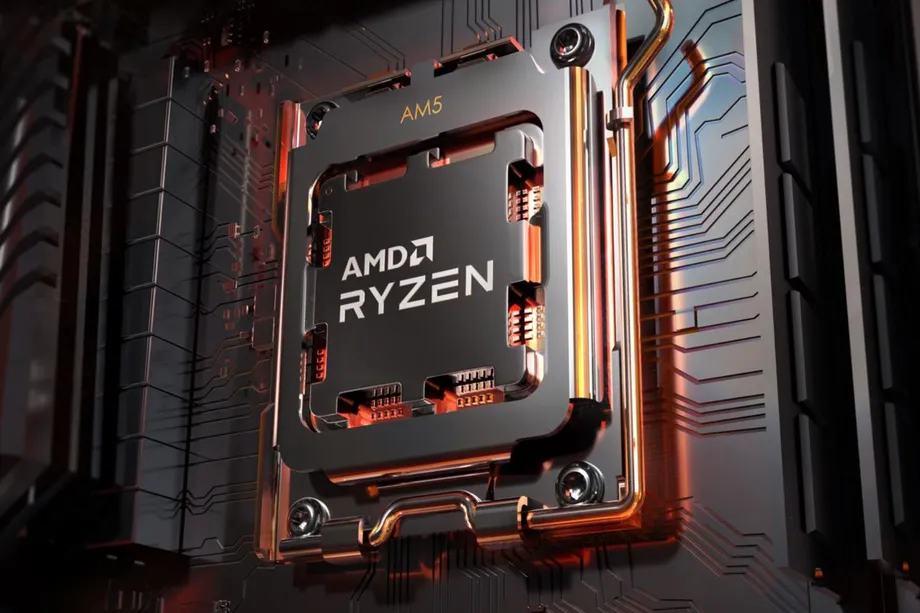AMD has officially unveiled the Ryzen 7000 series processors for desktops. The new line is based on AMD’s Zen 4 microarchitecture and will feature up to 16 cores on a 5nm node. The new processors will use a new AM5 socket, which means they will need compatible 600-series motherboards.
AMD says that the new 7000 series features a performance bump of more than 15 percent in single threaded applications.
The L2 cache has been doubled to 1 MB per core compared to AMD’s Zen 3, and also has advanced instruction sets tuned for better AI performance. AMD is also claiming turbo clock speeds of up to 5GHz, with the new generation processors. The 16-core Ryzen 7000 chips can boost up to 5.5GHz, which is a massive jump from the 5000 series desktop processors that featured sub-5GHz speeds.
AMD will also introduce 6nm processors in the 7000 series line-up, that will feature an iGPU, based on AMD’s RDNA2 architecture. The company has also managed to incorporate various power saving features including additional low power states and active power management.

The new AM5 socket will enable the processors to perform at high TDPs (up to 170 watts), which is significantly higher compared to the 5000 series which maxed out at 105 watts under load.
There is also support for PCIe 5.0, which when combined with a compatible X670, X670E and B650 motherboards will open up 24 PCIe 5.0 lanes, for use with slots and storage devices. The 7000 series has support for up to 14 USB ports, native Mac support for Wi-Fi 6E and can output on four displays using HDMI 2.1 and DisplayPort 2.

The new chipsets will also need DDR 5 memory and won’t be supporting DDR 4 RAM modules. Processors for the B650 based motherboards will be entry-level, the X670 motherboards will house mid-range parts and finally the X670E motherboards will be reserved for the premium higher priced chipsets.




